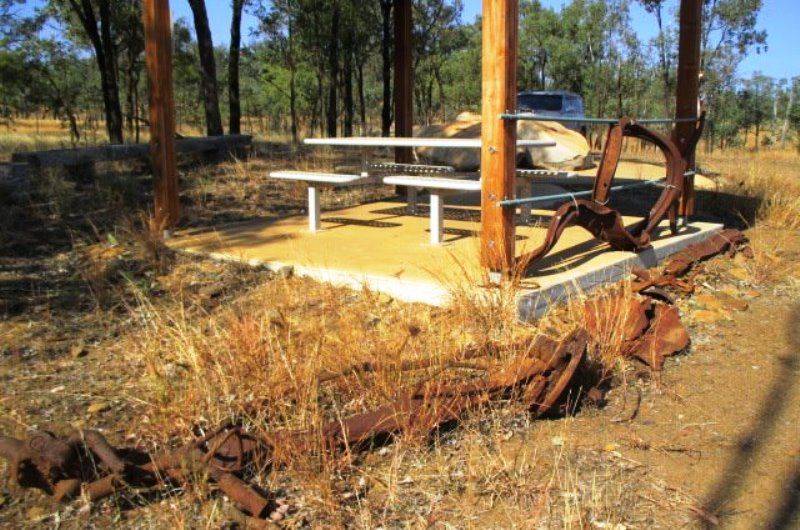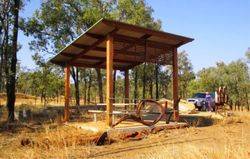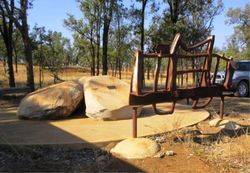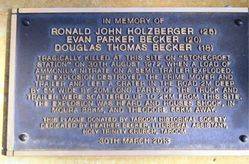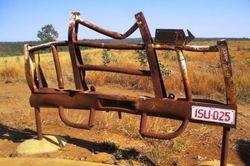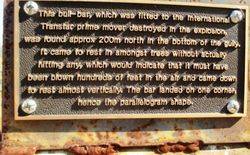
Ronald Holzberger, Evan & Douglas BeckerPrint Page 
A monument commemorates Ronald John Holzberger, Evan Parker Becker and Douglas Thomas Becker who were the victims of the truck explosion which occured near Stonecroft Station on Fitzroy Development Road in August 1972. The Taroom Historical Society and members of the victims families erected the monument at the site of the accident.
The explosion destroyed the prime mover and trailer, leaving a crater in the road two metres deep, five metres wide, 20 metres long.
Parts of the truck and trailer were scattered up to two kilometres away. The explosion was heard and shook houses 88 kilometres away in Moura and 55 kilometres away in Theodore.
Location
| Address: | Fitzroy Development Road, Near Stonecroft Station , 90 kilometres from Taroom , Taroom , 4420 |
|---|---|
| State: | QLD |
| Area: | AUS |
| GPS Coordinates: | Lat: -24.935909 Long: 149.525864 Note: GPS Coordinates are approximate. |
Details
| Monument Type: | Monument |
|---|---|
| Monument Theme: | People |
| Sub-Theme: | Tragedy |
| Actual Event Start Date: | 30-August-1972 |
| Actual Event End Date: | 30-August-1972 |
Dedication
| Actual Monument Dedication Date: | Saturday 30th March, 2013 |
|---|
In memory of
Ronald John Holzberger (25)
Evan Parker Becker (20)
Douglas Thomas Becker (18)
Tragically killed at this site on "Stonecroft Station" on 30th August 1972, when a load of ammonium nitrate on a semi-trailer exploded.
The explosion destroyed the prime mover and trailer and lleft a crater in the road 2m deep by 5m wide by 20m long. Parts of the truck and trailer were scattered up to 2km from this site. The explosion was heard and houses shook in Moora 88km, and Theodore 55km away.
This plaque donated by Taroom Historical Society
Dedicated by Heather Becker, Liturgical Assistant, Holy Trinity Church, Taroom
30th March 2013
This bull-bar, which was fitted to the International Transtar prime mover destroyed in the explosion, was found approx 200m north in the bottom of a gully.
It came to rest in amongst trees without actually hitting any, which would indicate that it must have been blown hundreds of feet in the air and came down to rest almost vertically.
The bar landed on one corner, hence the parallelogram shape.


